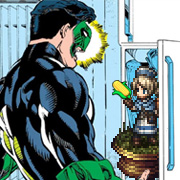|
The Belgian posted:but camus is YA I think we had to read The Stranger in 10th grade so you are right, poo poo!!
|
|
|
|

|
| # ? Jun 7, 2024 16:16 |
|
pospysyl posted:You mentioned you read Cormier when you were a kid (I did as well). Do you still read his books? Do you find yourself returning to them? I can't see myself doing it. Even when I was a kid, I thought many of his books were puerile and ridiculous. Beyond the Chocolate War, for instance, saw the precocious bully and his friend from the previous book engaged in a battle of wits involving death traps and complicated murder plots. It all reads as ultra-masculine brinksmanship more than anything else. I find much of his work intended mostly to shock, and while that's enough precocious, bookish twelve year olds, I think you can do much better. I read Cormier as an adult and enjoyed them. They're a bit ridiculous in terms of sketching a world which is a bit more extreme and heightened than our own, but I enjoy that in literature. I don't feel compelled to return to them, there's too much new stuff that I have on my to-read list, but I could see rereading I Am the Cheese, definitely.
|
|
|
CountFosco posted:I read Cormier as an adult and enjoyed them. They're a bit ridiculous in terms of sketching a world which is a bit more extreme and heightened than our own, but I enjoy that in literature. I don't feel compelled to return to them, there's too much new stuff that I have on my to-read list, but I could see rereading I Am the Cheese, definitely.  the heightened reality of the CW books works like absolute gangbusters in capturing how it feels to be an adolescent, if the books were more grounded they just wouldn't have worked. i want my kid to read the chocolate war when he's old enough no question also shoutout to the CW movie which is very underrated and possibly even bleaker than the book
|
|
|
|
|
would it be at all possible to shut the gently caress up about the chocolate war
|
|
|
|
|
Seldom Posts posted:Do any of you YA-haters also hate Robert Cormier? I actually adored The Stranger as a teenager. The shooting especially was incredibly powerful and to this day is one of the most effective and affecting moments of violence I have ever encountered in a work of fiction, most likely BECAUSE of when I read it. I do not think it is actually a particularly difficult work for a teenager. The short length alone makes it easier than many things, and Camus' exploration of the main themes is almost painfully straightforward. Hate Fibration fucked around with this message at 20:07 on Jun 2, 2018 |
|
|
|
chernobyl kinsman posted:would it be at all possible to shut the gently caress up about the chocolate war Mods please rename this thread to Bonfire of the Genres: Chocolate War Discussion Only
|
|
|
|
The chocolate war war
|
|
|
|
ive never even heard of the chocolate war but it sounds dumb as h*ck
|
|
|
|
pospysyl posted:You mentioned you read Cormier when you were a kid (I did as well). Do you still read his books? Do you find yourself returning to them? I can't see myself doing it. Even when I was a kid, I thought many of his books were puerile and ridiculous. Beyond the Chocolate War, for instance, saw the precocious bully and his friend from the previous book engaged in a battle of wits involving death traps and complicated murder plots. It all reads as ultra-masculine brinksmanship more than anything else. I find much of his work intended mostly to shock, and while that's enough precocious, bookish twelve year olds, I think you can do much better. I think the real question is why people think that if someone says they like a genre book, they need to be treated like they're in dire need of education and a life coach. I appreciate that you used the "good cop" approach, though thanks. When I see Cormier at a used bookstore, I buy a copy for my kids to read. I usually read if first, so I can talk about it with them, and also to see if it's what I remember. Of course they don't speak to me the same way, as they are books written for children. However, I can appreciate the craft which the author applies to write books for kids. So when I re-read the Chocolate War, I was like "drat, this would be a good way to introduce existentialism to someone." I also re-read Beyond the Chocolate War a couple years back. I don't recall it the way you do. I recall the friend coming up with the kind of idiotic murder scheme a 17 year old would come up with, and it not surprisingly failing. However, I could also appreciate that a 12 year old would probably find it engrossing enough, and also get the message when it fails. Ultra-masculinity is theme in the books --there are basically no female characters--I think you may have missed what the author is trying to say about that kind of behavior though. It is also a good book. It is also a YA book. Here's a good review of the Chocolate War, since I can tell the thread enjoys discussing it: https://www.avclub.com/robert-cormier-s-the-chocolate-war-is-a-much-banned-ma-1798232684
|
|
|
|
Seldom Posts posted:I think the real question is why people think that if someone says they like a genre book, they need to be treated like they're in dire need of education and a life coach. I appreciate that you used the "good cop" approach, though thanks. Probably because Seldom Posts posted:they like a genre book,
|
|
|
|
Seldom Posts posted:I think the real question is why people think that if someone says they like a genre book, they need to be treated like they're in dire need of education and a life coach. I appreciate that you used the "good cop" approach, though thanks. Mel Mudkiper posted:Probably because Seldom Posts posted:they like a genre book Mel Mudkiper posted:Yeah and I like the chocolate war Here, hope this helps: https://www.tonyrobbins.com/tony-robbins-books/
|
|
|
|
 Hey baby, wanna see me wake my giant
|
|
|
|
Is this dude a self help writer or a sith
|
|
|
|
Whoops, he's evil, my bad. https://www.washingtonpost.com/vide...m=.96355d63d266 https://www.youtube.com/watch?v=D-nzYkd-TIw
|
|
|
|
I for one am surprised the guy who wrote a book called unlimited power is immoral
|
|
|
|
i wish you lived up to your username
|
|
|
|
|
When I was a kid, my cool half-sister almost got me The Chocolate War, but she went with Slaughterhouse-Five instead, and here I am.
|
|
|
|
Mel Mudkiper posted:just try not to get probated for something by then you had one loving job lamps
|
|
|
|
BotL got probied again rofl
|
|
|
|
Sham bam bamina! fucked around with this message at 22:32 on Jun 9, 2018 |
|
|
|
The Chocolate War is valuable for another reason: it provides a glimpse into 20th century New England Catholicism, which has a very particular flavor of Catholicism. John Bellairs is another children's author who is also worth reading if you want to get a taste of this particular sub-culture. I recently reread "The Curse of the Blue Figurine" and I was shocked at how it seems to source its horror in an underlying anxiety over Clerical abuse of children. For those who don't know, John Bellairs was sort of like R. L. Stine for kids who found R L Stine covers a bit too goofy/gauche, because Bellairs' covers had 
|
|
|
|
Petitioning now to make The Chocolate War the July BOTM
|
|
|
|
I never read TCW as a kid but I did read this similar book called "The Lottery" which is not the short story by Shirley Jackson: https://www.goodreads.com/book/show/293724.The_Lottery Similar situation with bullying and evil student council. My school didn't have a student council so I had no idea what that was about, but calling something the "Shadow Council" sounds cool. I have vivid memories of it but I have no idea if the writing still holds up. Probably not.
|
|
|
|
It's a shame that there's no other books about New England catholicism so you have to read a children's novel called 'The Chocolate War' if you want to learn about that stuff
|
|
|
|
You don't have to read TCW to get a taste of New England catholicism, but it does help. Sort of like how watching a Harold Lloyd film helps give you a sense of the flavor of life in NYC in the twenties. Actually, in a very literal sense you don't have to read anything. In fact, I'd recommend you stop reading entirely, given that you seem to be consumed by an anxiety that you might read something that would spoil the image you have in your head of yourself as a very mature adult, the sort of adult that has progressed far past finding dickbutt amusing.
|
|
|
|
CountFosco posted:You don't have to read TCW to get a taste of New England catholicism, but it does help. Sort of like how watching a Harold Lloyd film helps give you a sense of the flavor of life in NYC in the twenties. Actually, in a very literal sense you don't have to read anything. In fact, I'd recommend you stop reading entirely, given that you seem to be consumed by an anxiety that you might read something that would spoil the image you have in your head of yourself as a very mature adult, the sort of adult that has progressed far past finding dickbutt amusing. There's really a lot going on in this post A human heart fucked around with this message at 04:14 on Jun 7, 2018 |
|
|
|
My mom really liked The Chocolate War when she read if and I trust her taste.
|
|
|
CountFosco posted:You don't have to read TCW to get a taste of New England catholicism, but it does help. Sort of like how watching a Harold Lloyd film helps give you a sense of the flavor of life in NYC in the twenties. Actually, in a very literal sense you don't have to read anything. In fact, I'd recommend you stop reading entirely, given that you seem to be consumed by an anxiety that you might read something that would spoil the image you have in your head of yourself as a very mature adult, the sort of adult that has progressed far past finding dickbutt amusing. the amyloid plaque levels in your brain absolutely skyrocketed between the first and last words of this post
|
|
|
|
|
CountFosco posted:You don't have to read TCW to get a taste of New England catholicism, but it does help. Sort of like how watching a Harold Lloyd film helps give you a sense of the flavor of life in NYC in the twenties. Actually, in a very literal sense you don't have to read anything. In fact, I'd recommend you stop reading entirely, given that you seem to be consumed by an anxiety that you might read something that would spoil the image you have in your head of yourself as a very mature adult, the sort of adult that has progressed far past finding dickbutt amusing.
|
|
|
|
CountFosco posted:The Chocolate War is valuable for another reason: it provides a glimpse into 20th century New England Catholicism, which has a very particular flavor of Catholicism. John Bellairs is another children's author who is also worth reading if you want to get a taste of this particular sub-culture. I recently reread "The Curse of the Blue Figurine" and I was shocked at how it seems to source its horror in an underlying anxiety over Clerical abuse of children. For those who don't know, John Bellairs was sort of like R. L. Stine for kids who found R L Stine covers a bit too goofy/gauche, because Bellairs' covers had John Bellairs is a good writer who writes good books aimed at children? How many hot takes can this thread support? John Bellairs is great, but he's best for an audience even younger than Cormier, like age 10-12. However, adult readers who want to pick up on the horrifying subtext of the books might be interested in these fun facts: 1. JB's first book was "St. Fidgeta & Other Parodies, a mostly uncategorizable spoof of 1960s Catholicism" https://en.wikipedia.org/wiki/St._Fidgeta_and_Other_Parodies 2 JB "... maintained a lifelong interest in archaeology, architecture, kitschy antiques, bad poetry, traveling to the UK , and studying history and Latin" https://en.wikipedia.org/wiki/John_Bellairs
|
|
|
|
CountFosco posted:You don't have to read TCW to get a taste of New England catholicism, but it does help. Sort of like how watching a Harold Lloyd film helps give you a sense of the flavor of life in NYC in the twenties. Actually, in a very literal sense you don't have to read anything. In fact, I'd recommend you stop reading entirely, given that you seem to be consumed by an anxiety that you might read something that would spoil the image you have in your head of yourself as a very mature adult, the sort of adult that has progressed far past finding dickbutt amusing. Yo WTF do not bring my main man dickbutt into this
|
|
|
|
I would argue that dickbutt, much like any other fine art, gains meaning as you mature
|
|
|
|
Seldom Posts posted:John Bellairs is a good writer who writes good books aimed at children? How many hot takes can this thread support? And that's about the age I was when I read Bellairs. Further, you'll note that I didn't say he was a "good writer." I said that he was a writer "worth reading."
|
|
|
|
This didn't turn out quite how I wanted, but it's gotta come out someday. The Hack-made Tale quote:Like anything that appears suddenly and grows fast, regimes that come out of nothing inevitably have shallow roots and will tend to crash in the first storm. - Niccolo Machiavelli, The Prince Reading Margaret Atwood�s The Handmaid�s Tale, one is inevitably reminded of George Orwell�s complaint that his English contemporaries, in consequence of their comfortable detachment from Continental Europe and its political upheavals, were institutionally incapable of writing any credible literature or reportage concerning totalitarianism. Orwell would go on to prove his point by writing 1984, the definitive sci-fi dystopia in the popular consciousness, which like any dystopia is reliant on imaginative speculation rather than observational insight. Atwood in turn has produced what is essentially the 1984 of gender, concerned with life of a state concubine in a hyper-puritanical, totalitarian American theocracy. Like Orwell, Atwood mostly offers speculative alarmism. The Handmaid�s Tale is not a failure because the institution of patriarchy, authoritarianism, or fundamentalist rule in a developed Western country is implausible, but because it relies on complicated sci-fi contrivance. The milieu is the totalitarian Republic of Gilead, formerly the United States of America. Gilead has been built in response to an unexplained fertility crisis, which it counteracts through restriction of women�s (and men�s) rights and the imposition of gender castes. Central to this scheme are the Handmaids, who serve as surrogate mothers for privileged men and women of Gilead, even their names only representing their current owner. The novel consists of the faux-oral narrative of one Offred, a Handmaid assigned to sympathetic state official, with the narrative following her quiet exploration of her limited boundaries and the memories of her passage from average American woman, wife, mother, and all-around person to a sex slave. What is necessary for authoritarian theocracy to be instituted in America is, apparently, for sleepy semen to inspire Old Testament-loving cranks to infiltrate the US security establishment, assassinate the President and those clowns in Congress, and seize power. The pseudo-Christian regime of Gilead is viciously Puritanical, beyond the pale for anyone but Daesh diehards and facetious trolls. It seems detached from real cultural tradition in every regard, and nothing exemplifies this better than that in this novel of Christian fundamentalism, the word �Jesus� is only ever used as an expletive. The result is that The Handmaid�s Tale is in essence a fearmongering fantasy, warning of conspiracies rolling human rights back to the Stove Age. This line of critique is not particularly original when it comes to The Handmaid�s Tale, but it has been framed as a question of plausibility rather than as of aesthetics, and what we must confront is Atwood�s categorizing ethos. Almost any given science-fiction dystopia is defined by its tendency towards classification and quantification, which serves as criticism of authoritarian rationalism, but also tends to leave an impression of feeble-minded fascination with binaries (Party/Proles, Inner Party/Outer Party, person/unperson, for example). Rather than reflecting of totalitarian categorization, Atwood�s panoply of significant nouns � Commanders, Wives, Handmaids, Aunts, Jezebels, Angels, Guardians, Eyes � work more as a tool for eliminating nuance. As in Orwell�s 1984, there is a conspiratorial mindset involved which simplifies social dynamics in favour of manipulative cabals: his Inner Party is Satanic, Illuminati-like in character. Atwood justifies theocratic America through conspiracy. In such light these dystopias turn into perverse fantasies, literary virtual realities which beguile the reader with their vastly simplified worlds. Perhaps if the novel had been fabulist in style rather than a realist, its basic absurdity would not be so incongruous. There are hints of satire evident in the naive brand names found in the novel, such as the variations on the prefix �Compu� � Compucheck, Compudoc, Compunumber, Compufuckthisnovel � or the Gileadean retail chains �All Flesh� (tempting one to reach for Samuel Butler) and �Milk and Honey�. Perhaps more than the 1984 of gender, we should see Atwood�s manic American dystopia in the same tradition as David Foster Wallace�s logorrheic magnum dope-us Infinite Jest. Both Atwood and Wallace attempt sharp observations and bury them in cruft. quote:Also, there had been a letdown of sorts. What had I been expecting, behind that closed door, the first time? Something unspeakable, down on all fours perhaps, perversions, whips, mutilations? At the very least some minor sexual manipulation, some bygone peccadillo now denied him, prohibited by law and punishable by amputation. To be asked to play Scrabble, instead, as if we were an old married couple, or two children, seemed kinky in the extreme, a violation too in its own way. As a request it was opaque. The prose of The Handmaid�s Tale is coloured and defined by Offred�s associative imagination: quote:She�ll be allowed to nurse the baby, for a few months, they believe in mother�s milk. After that she�ll be transferred, to see if she can do it again, with someone else who needs a turn. But she�ll never be sent to the Colonies, she�ll never be declared Unwoman. That is her reward. quote:That was in May. Spring has now been undergone. The tulips have had their moment and are done, shedding their petals one by one, like teeth. One day I came upon Serena Joy, kneeling on a cushion in the garden, her cane beside her on the grass. She was snipping off the seed pods with a pair of shears. I watched her sideways as I went past, with my basket of oranges and lamb chops. She was aiming, positioning the blades of the shears, then cutting with a convulsive jerk of the hands. Was it the arthritis, creeping up? Or some blitzkrieg, some kamikaze, committed on the swelling genitalia of the flowers? The fruiting body. To cut off the seed pods is supposed to make the bulb store energy. In both Atwood relies on a repetitive structure of flowing observation and mysterious, aphoristic halts� �What I coveted was the shears� or �Be thankful for small mercies� � something like the problem-resolution plots of sonnets. We have seen something similar in the works of Guy Gavriel Kay. Atwood�s prose is too self-consciously significant, occupied with symbolism for symbolism�s sake, its language too literary. It is moreover Compu-confusing whenever it is in poetic register. Consider the description of a character�s violent cutting of flowers more closely: �Was it arthritis, creeping up? Or some blitzkrieg, some kamikaze, committed on the swelling genitalia of the flowers? The fruiting body.� The language is near parody. It�s bad poetry, and no-one should be surprised to discover that besides her novels, Atwood has also produced mediocre lyrical works. The imagery presents the profane satire of a mock-saint acting out a mock-castration, reflecting the playfulness that Offred still retains under Gilead's puritanism, but the specifics illustrate the problem of her speculations and by extension Atwood�s prose. We are presented with the question of whether or not Serena Joy�s strange violence is a sign of her decaying authority or her method of impotently lashing out, but this exercise is pointless: they could be both equally true. The narration of The Handmaid�s Tale is occupied with Offred imagining what was, what is, and what could be, and thus is full of superfluous speculations that reveal nothing new. Offred is constantly imagining and pondering possible developments, but as with the question of �The Lady, or the Tiger?�, any choice is equally true. There is no ambiguity when all the choices are equally valid: we are simply dealing with a lack of knowledge. When Offred is led away to her fate at the end of the novel, she might be being rescued, or she might be going to her death, but the ambiguity is too obvious to inspire anything but a sense of anti-climax. This is especially evident in the novel�s epilogue, presented as a speech from a futuristic symposium of �Gilead studies,� satirizing academic chauvinism and frivolity. The future historian offers theories on the identity of the novel�s principal characters, which emphasises the unknowability of history and the nature of fiction, but the exercise is facile: any answer would be as equally irrelevant, as with Offred�s speculations. Atwood�s endless intimations are evasive, not suggestive. Throughout The Handmaid�s Tale one receives the impression of incomplete satire, and there is little avoiding the fact that it is a very unfunny comedy. Those drawn along by Atwood�s nightmarish dystopia will likely Compu-gawk at the notion of calling such a bleak work comic, but they would lack perception. Let us remember those strange brand names and capitalized nouns, or that the plot of the novel might hinge on a biological weapon intended for deployment through caviar against Russkies, a too-real mockery of history�s stranger intelligence operations: quote:Professor Wade and I have speculated in our joint paper, �The Notion of �Seed� in Early Gilead,� that both � like many of the Commanders � had come in contact with a sterility-causing virus that was developed by secret pre-Gilead gene-splicing experiments with mumps, and which was intended for insertion into the supply of caviar used by top officials in Moscow. (The experiment was abandoned after the Spheres of Influence Accord, because the virus was considered too uncontrollable and therefore too dangerous by many, although some wished to sprinkle it over India.) The dual structure of Offred�s spiraling narrative, her speculation without insight, and her symbols without meaning appear themselves to speak of authorial failure. Offred�s character is that of an incompetent author. An antidote to The Handmaid�s Tale can be found in the works of Nobel laureate Herta M�ller, who has distinguished herself with writing on the experience of the German minority of Romania under Communist rule. M�ller is concerned with the brokenness of country�s culture, society, and people that its authoritarian past and present engendered, and the grotesque spiritual landscape that the Banat Swabians and citizens of Communist Romania inhabited. Despite the vaunted brutality of Atwood�s dystopian Compu-vision, M�ller reveals it as hopelessly and naively effete. No genre-writing pessimist can be compared to M�ller in her absolute pitilessness, in her prose from which all comforting sentiment has been worn away. Perhaps no comfort was possible in the first place, for her characters seem to have simply exchanged the private tyranny of villages and families for the public tyranny of dictatorship � trading the SS father for the PCR father of the fatherland. The family of The Passport, who must prostitute their daughter to the village priest in order to immigrate out of Romania (in a ritual more corrupt than its counterpart in The Handmaid�s Tale), relate to each other with curt, blunt hostility, their mistreatment of each other only registered as a matter of personal shame rather than as a question of empathy. The Land of Green Plums highlights the similarities and differences with Atwood with its narrative�s shifts in time. M�ller�s narrator-protagonist does not affect the role of Offred�s speculative individualist, but that of an observant everywoman. She favours bizarre, oblique metaphors, their distorted nature reflecting the grotesqueness of broken lives and peoples: for example, the monstrous apple tree eating its own fruit in The Passport like Saturn devouring his children, or the faces that unmistakably bear the childhoods and lives of their bearers in The Land of Green Plums. M�ller�s prose relies on short, additive sentences, and in The Land of Green Plums the repetition of oblique metaphors. These suggest monotony, deprivation, weariness, and mechanization, some of the building-blocks of her dystopia. Flashing back to the rise of Gilead, Offred recalls a warning from her friend, a lesbian activist who serves as a kind of empowered double to suppressed Offred: quote:Look out, said Moira to me, over the phone. Here it comes. This is a comment that seems aphoristic but is really hucksterism, a sort of political cold reading. Moira certainly could not see an elaborate plot to institute pseudo-Biblical totalitarianism in the United States, so the conspiratorial �they�ve been building up to this� could stand for absolutely anything, as could the threatening �it�. This exchange could be between anyone over anything without changing its meaning or effect, and the novel�s Compu-failure is crystallized in it. Gilead is a broad and hollow political spectre that rises from nothing, has shallow roots, and crashes at the first doubt of the reader. The novel is paranoid: teaches to fear everything rather than perceiving anything, as evident in the inevitable and uneducated comparisons between Gilead and the Trump administration inspired by the novel�s television adaptation. The �academic� epilogue makes the point that all regimes synthesize previous regimes, but for Atwood this means justifying Gilead as a hodge-podge of existing authoritarian and patriarchal practices. The advertising campaign for the adaptation is surprisingly on point: the future is a nightmare, but a nightmare too is just a type of fantasy. BravestOfTheLamps fucked around with this message at 11:10 on Feb 5, 2019 |
|
|
|
Huh, I didn't expect BotL's first review in so long to be about that book. I read it once for a bioethics class. Thought it was alright, preferred Brave New World.
|
|
|
|
I read the first four chapters this week, felt like I had seen everything, and put it down for something less try hard. Any criticism I make of it would be shouted down on social media. I write satirical short stories and sometimes sell them, and I mine stuff like this for annoyed inspiration, but there was nothing to mine here, no real original thought or criticism, just an extended look at why hardline patriarchy = bad without any valuable insights. Just extrude that same idea over 400 pages.
|
|
|
|
The Handmaid's Tale isn't a bad idea but it's just sorta asinine as it's executed.
|
|
|
|
its an extremely over-the-top novel, but a really revealing look into the particular anxieties of liberal 1980s second wave feminism
chernobyl kinsman fucked around with this message at 05:39 on Jun 10, 2018 |
|
|
|
|
I always felt like Atwood is a natural satirist who ended up suckered into appealing to a false notion that to be Literary one must be Serious, and didn't come into her own until she got older and realised she could write whatever the gently caress she wanted and have fun with it.
|
|
|
|

|
| # ? Jun 7, 2024 16:16 |
|
the only other atwood ive read is oryx and crake, and all i remember of that is general corporate biopunk dystopia but also there was a group of new-humans that the supergenius character genetically engineered and their labia turned blue when they were aroused so i'm not, like, a big fan
|
|
|
|
















